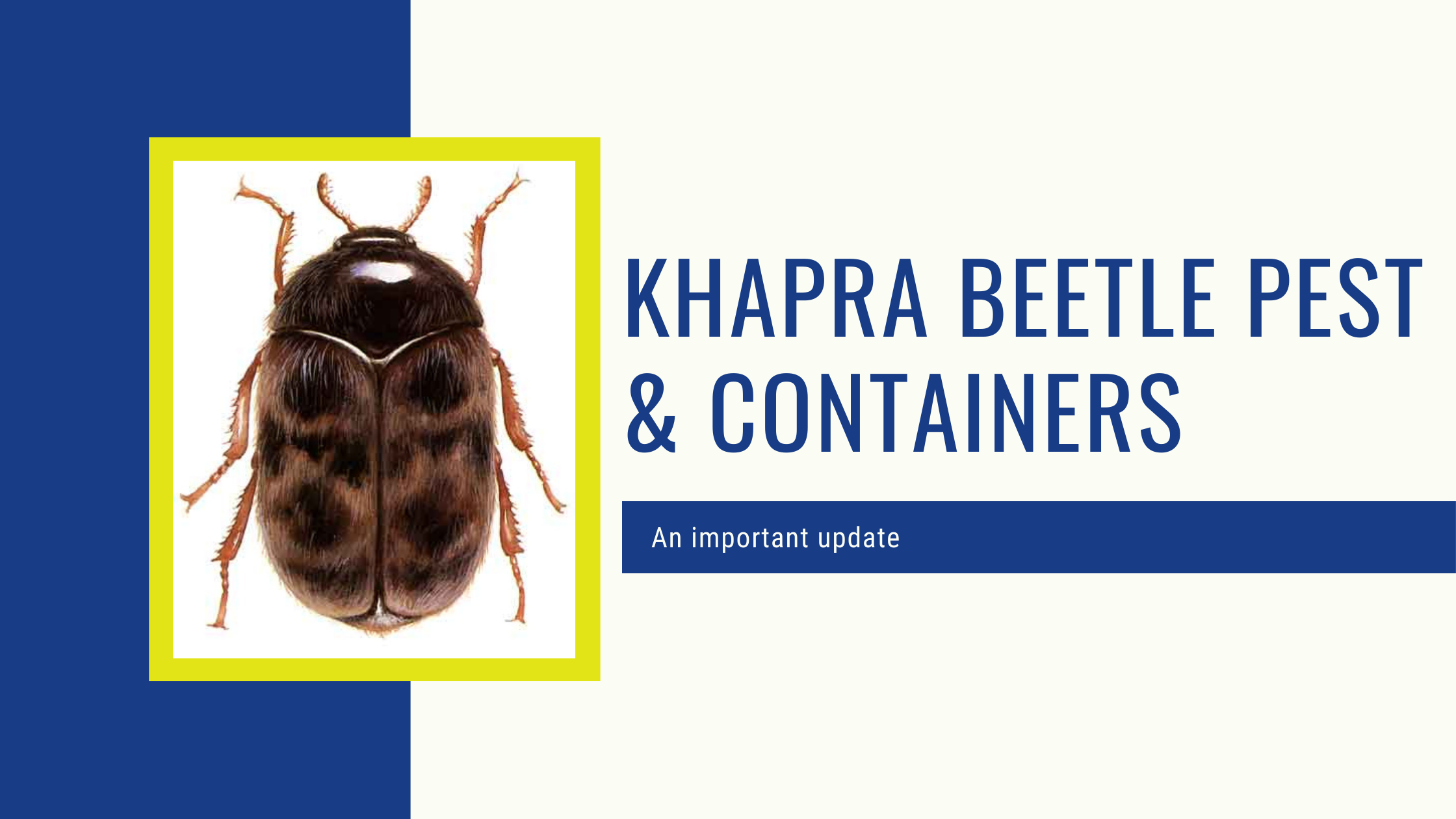
11 May Khapra Beetle Pest & Containers
As of April the Australian Department of Agriculture has introduced mandatory offshore treatment requirements for target risk sea containers to protect against khapra beetle. Failure to comply with these requirements will result in export of the container upon arrival in Australia, with all costs to be borne by the customer.
Khapra beetle (Trogoderma granarium) is a destructive pest that can reproduce rapidly in stored products under hot conditions and is considered as a significant biosecurity risk to Australia. Kindly refer to appendix for the list of High-Risk Plant Products & High Risk Countries.
Failure to comply with these requirements will result in export of the container upon arrival in Australia. All the costs will be on customer’s account.
Targeted risk containers
- Full / Full consolidated box containing high risk plant products packed in a Khapra Beetle-risk country; implementation date: 12 April 2021
- Full / Full consolidated box packed in a Khapra Beetle-risk country AND destined for a rural grain growing area of Australia; mid-2021 (Date TBC).
Approved treatments
- Methyl bromide fumigation
- Heat treatment
- Insecticide spray
Note: Khapra beetle treatment rates are higher than the current accepted BMSB treatment rates.
The following exclusions apply:
- Goods that are thermally processed that are commercially manufactured and packaged such as retorted, blanched, roasted, fried, par-boiled, boiled, puffed, malted or pasteurised goods
- Goods that are chemically processed and preserved such as with a Formalin Propionic Acid fixative, Formalin Acetic acid alcohol, Carnoy’s fixative or ethanol.
- Fresh vegetables
- Commercially manufactured frozen or freeze-dried food (perishable foodstuffs only)
- Frozen plant samples for plant research (including through the use of liquid nitrogen and freeze drying)
- Oils derived from vegetables or seed.
- Preserved or pickled (such as in vinegar or alcohol)
- Goods that have been refined or extracted to obtain specific components from plant-based raw materials. Examples include starch, lecithin, protein, cellulose, sugars, and pigments.
We would encourage all our clients moving ‘target high risk’ goods to familiarise themselves with the DAWR guidelines, and to ensure their suppliers comply with any offshore mandatory treatment conditions ASAP.
Please refer to below link for a full list of target risk countries & high-risk plant products and their corresponding HS codes:
* https://www.agriculture.gov.au/pests-diseases-weeds/plant/khapra-beetle/urgent-actions#highrisk-plant-products
* https://www.agriculture.gov.au/import/arrival/pests/khapra_beetle
If you have any further questions, please do not hesitate to contact your Transolve representative.


Sorry, the comment form is closed at this time.